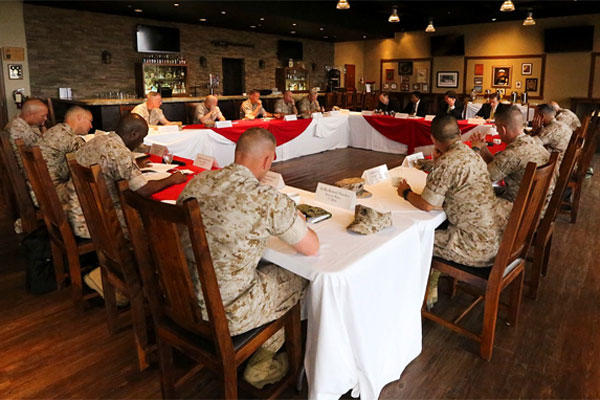Members of the congressionally mandated panel on military compensation and retirement reform said troop pay raises, housing allowances and special pays are "operating effectively."
That positive assessment is likely to give lawmakers ammunition for shooting holes in the Defense Department's latest budget request, which calls for a pay raise that's less than the private sector and more cuts to basic allowances for housing.
Members of the Military Compensation and Retirement Modernization Commission were on Capitol Hill on Tuesday, testifying before the Senate Armed Services Committee about their recent recommendations to offer troops 401(k)-like retirement plans and families a choice of commercial health insurance plans in lieu of Tricare, among other proposals.
Sen. Deb Fischer, R-Nebraska, asked the panelists why they didn't recommend any changes to housing allowances -- which the Pentagon has pushed to reduce in recent years by slowing their rate of growth and thus forcing troops to pay a share of the costs. Commissioner Michael Higgins said after an extensive, 18-month review, they determined pay and allowances were sufficient.
"BAH in our view is operating effectively to provide the housing that our service members need," he said. "There are a number of the elements of the compensation system that drew our attention very dramatically that we did not elect to meddle in, if you will, because we believe they are operating effectively. Others would include the pay raise mechanism, the pay table itself, we believe is operating correctly, special pays and allowances."
Higgins, a former staff member on the House's counterpart committee, added: "We did not believe the structure of those programs were deserving of modernization."
Just a day earlier, the Pentagon released its fiscal 2016 budget request that included a 1.3 military pay raise, slightly more than the 1 percent bump troops received the past two years. The raise, however, is well below the 2.3 percent estimated increase in private-sector wage growth, which it's supposed to match by law.
The spending plan beginning Oct. 1 would also slow the growth of housing allowances by another 4 percent over the next two to three years, in addition to the 1 percent approved for this year. Thus, service members would eventually pay an average of 5 percent of the costs out of pocket.
The proposed pay and benefits changes are part of an effort to cut personnel costs, budgeted at $179 billion in fiscal 2016, or a third of the department's non-war budget of $534 billion. Including civilian personnel, the percentage rises to almost half of the spending plan.
Sen. John McCain, R-Arizona, chairman of the Senate committee, said his colleague Sen. Lindsey Graham, R-South Carolina, who heads the personnel subcommittee, will soon hold a series of hearings to debate the commission's recommendations in more detail, particularly those related to military retirement and health care.
"The military's current compensation and retirement systems are decades old and in their current form may be unsuitable for modern day military members," McCain said. "We have a nearly 70-year-old military retirement system and Tricare, the military's health program, was implemented in the mid-1990s. Both the retirement system and Tricare were appropriate for their time, but clearly times have changed."
The senator added, "In a constrained fiscal environment, we must consider how best to achieve the proper balance between providing attractive compensation and benefits for our troops and paying for military modernization and readiness, effective equipment and advanced training that will enable our military to response in moments of crisis and keep our citizens safe."
-- Brendan McGarry can be reached at brendan.mcgarry@military.com



























